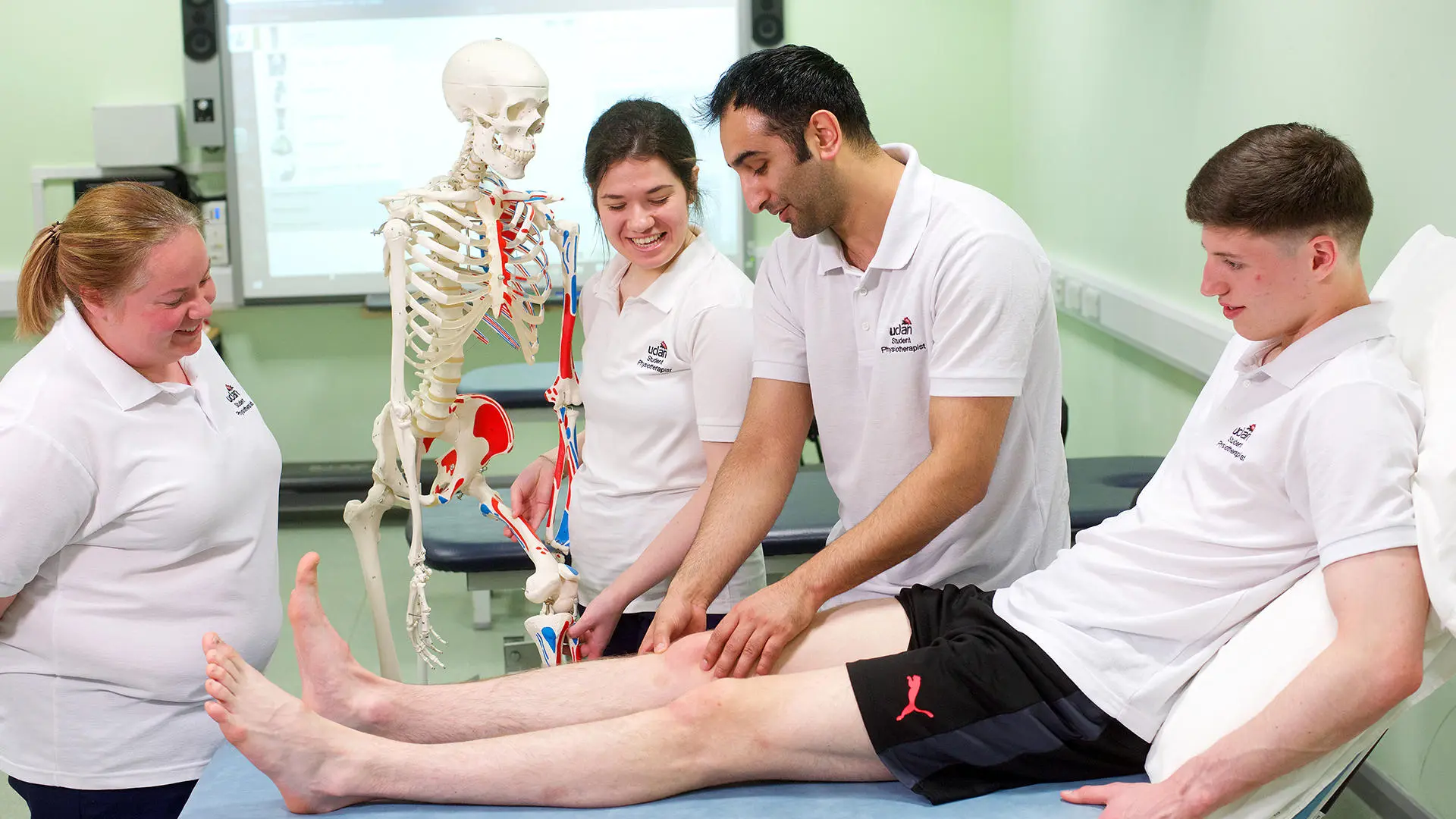Amy Brogan returned to education aged 25 to study the BSc (Hons) Physiotherapy course at the University of Central Lancashire (UCLan) and is on track to pursue her dream of becoming a physiotherapist.
After going straight into the world of work after sixth form, it was her full-time job as a secretary for Multiple Sclerosis (MS) and Motor Neurone Disease (MND) nurses that inspired her to study Physiotherapy.
Amy explained: “I always had the desire to go into a healthcare-based career, but it was my job as a secretary where I saw first-hand how the physiotherapists interacted with patients and how much physio had an impact on them. I knew that this was something I wanted to explore further as a career.”
Following on from further research into the profession and some shadowing opportunities that she was able to arrange, Amy completed an access course before exploring her university options, which is when she came to a UCLan Open Day.
"From the lecturers to the Student Ambassadors, everyone was so down to earth, lovely and most importantly, genuine."
Talking more about her experience she said: “From the lecturers to the Student Ambassadors, everyone was so down to earth, lovely and most importantly, genuine. I was also impressed by the level of facilities for physio students, from the anatomage tables to the high fidelity simulation suite – things I’m still using to this day on my course.”
Despite starting her degree during the pandemic, Amy has had invaluable experiences so far, such as an observational placement in the community.
She said: “The [observational placement] involved going into people’s homes and we were fully kitted out with the appropriate PPE equipment in line with COVID-19. Even though this was observational, I gained so much confidence just from meeting patients and speaking to them. I feel like when I go on my future placements, I’m well prepared.”
Amy credits the lecturers on her course for their constant support and the wealth of knowledge they bring, as many of them are still active physiotherapists themselves.

She explained: “I can’t credit the lecturers enough. I will always remember my first exam when I received a mark of 45% but thanks to the constant feedback and support, I am now achieving around 80%. As many of them continue to work in the field, they’re bringing current practices into our education, which means we’re getting so much out of our university classes before we even go on placement.”
As well as the wealth of experience from lecturers, Amy has benefitted from the clinicians that come in to aid their learning.
Amy said: “Something I didn’t realise before starting the course was how much of a big role clinicians would play in our learning. We have had classes where they have come in and taught us in hands-on sessions. One highlight was our cardiorespiratory module where we learned more about chest x-rays, blood analysis and other intricate parts of physiotherapy.”
"Neurological physiotherapy is definitely where I see my future career. I asked my lecturer whether I’d be able to get a placement in this area on the course and they were able to make this happen for me."
Looking ahead to the future, Amy has her sights set on a future career in Neurophysiotherapy, which specialises in patients who have suffered from conditions such as strokes and traumatic brain injuries. She has been able to secure a placement on her course in this area, set to take place next year.
Amy said: “Neurological physiotherapy is definitely where I see my future career. I asked my lecturer whether I’d be able to get a placement in this area on the course and they were able to make this happen for me. Due to the clinicians being a huge part of our learning, I already know who will be my Clinical Educator as we’ve met before and she’s examined me previously. So we already have that established relationship.”
She continued to say: “I have learned so much. Being a physio isn’t just about physical health and I will always remember one of our lecturers saying to us that you’re not just a physio [when treating patients] and that has rung true.”
Find out more
- Subject
Health Professions

